Search Results for: Dolphins
Skip to resultsCan’t find what you’re looking for? Visit our FAQ page.
455 results for: Dolphins
-
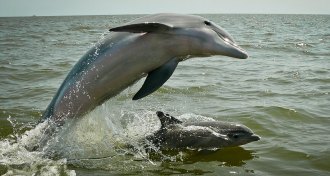 Animals
AnimalsEyewitness account of a dolphin birth takes a dark turn
Scientists witnessed the first wild birth of a bottlenose dolphin — and an attempt at infanticide.
-
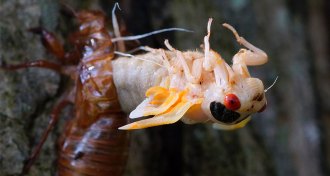 Animals
AnimalsSome animals’ internal clocks follow a different drummer
Circadian clocks in some animals tick-tock to a different beat.
-
 Neuroscience
NeuroscienceWrinkled brain mimics crumpled paper
Brains crumple up just like wads of paper, a new study suggests.
-
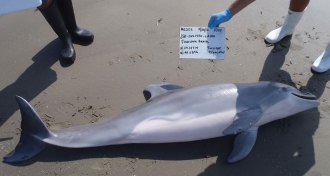 Environment
EnvironmentRising dolphin deaths linked to Deepwater Horizon spill
Lung lesions and other injuries link an extensive die-off of dolphins in the Gulf of Mexico to the 2010 Deepwater Horizon oil spill.
By Beth Mole -
 Animals
AnimalsAnimal moms sacrifice a lot — sometimes even themselves
In the animal kingdom, there are bad mothers and good ones — and then there are those that let their kids eat them.
-
 Environment
EnvironmentFive years on, Deepwater Horizon oil spill’s impact lingers
Five years after the Gulf of Mexico’s largest disaster, researchers are still studying its ecological impact and struggling to learn the fate of most of the spilled oil.
By Beth Mole -
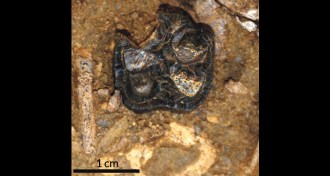 Paleontology
PaleontologyHippo history extracted from fossil teeth found in Kenya
Fossilized teeth from the newly identified Epirigenys lokonensis, an ancestor of the hippopotamus, are filling in some of the mammoth mammal’s history.
-
 Animals
Animals‘The Cultural Lives of Whales and Dolphins’ offers window into cetacean societies
Dolphins and whales pass cultural knowledge to one another, the authors of a new book argue.
-
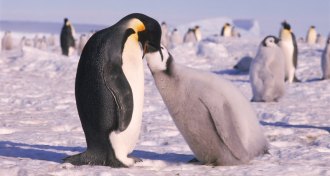 Genetics
GeneticsFor penguins, it’s a matter of no taste
Penguins lack taste genes for bitter, sweet and umami.
-
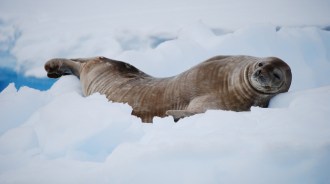 Animals
AnimalsDiving marine mammals take deep prey plunges to heart
In spite of their diving prowess, Weddell seals and bottlenosed dolphins experience irregular heart rates when they venture beyond 200 meters under the sea.
-
 Animals
AnimalsIt’s bat vs. bat in aerial jamming wars
In nighttime flying duels, Mexican free-tailed bats make short, wavering sirenlike sounds that jam each other’s sonar.
By Susan Milius -
 Animals
AnimalsDolphins appear to perceive magnetic fields
Bottlenose dolphins take less time to start exploring a magnetized block, suggesting they can sense magnetic fields.